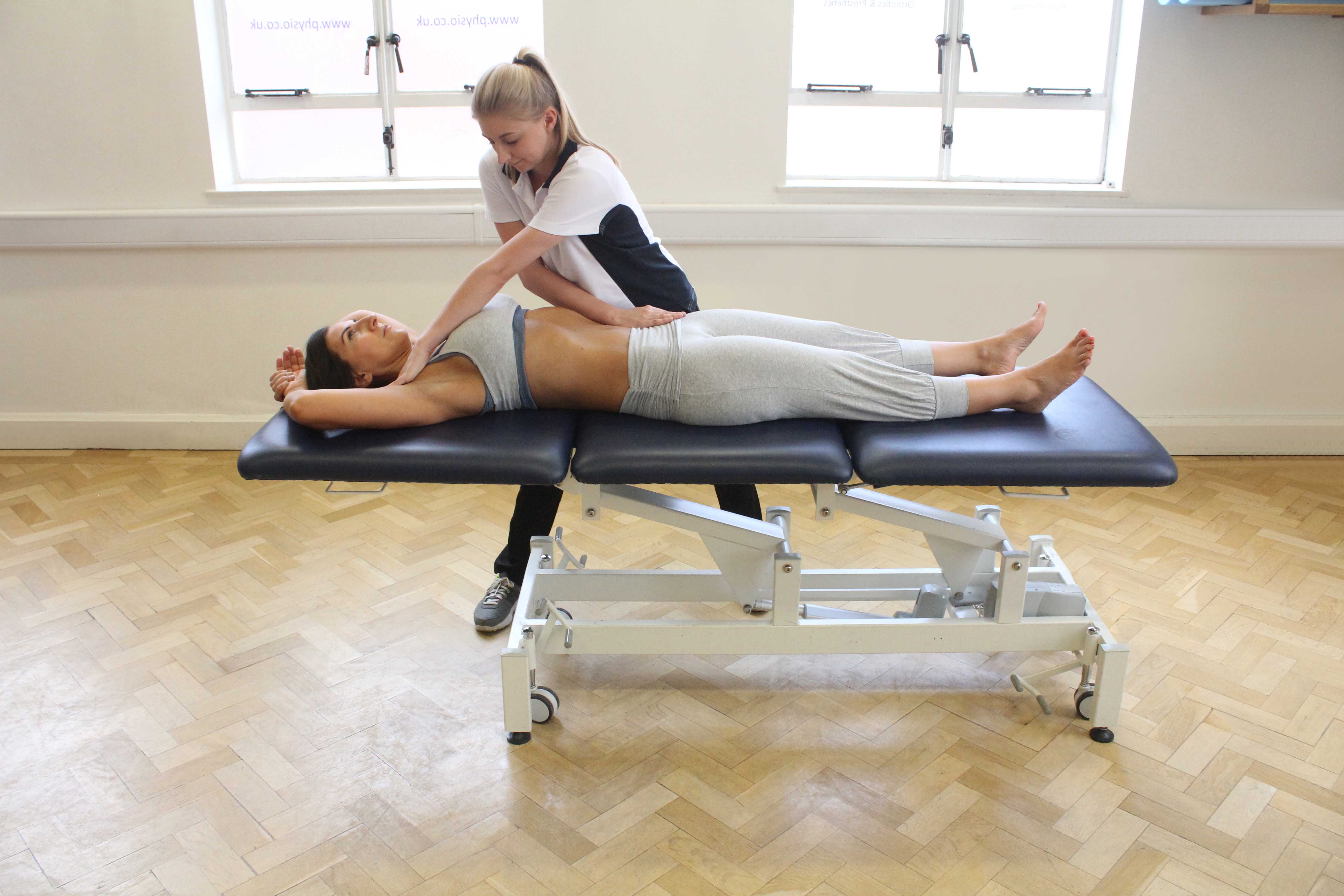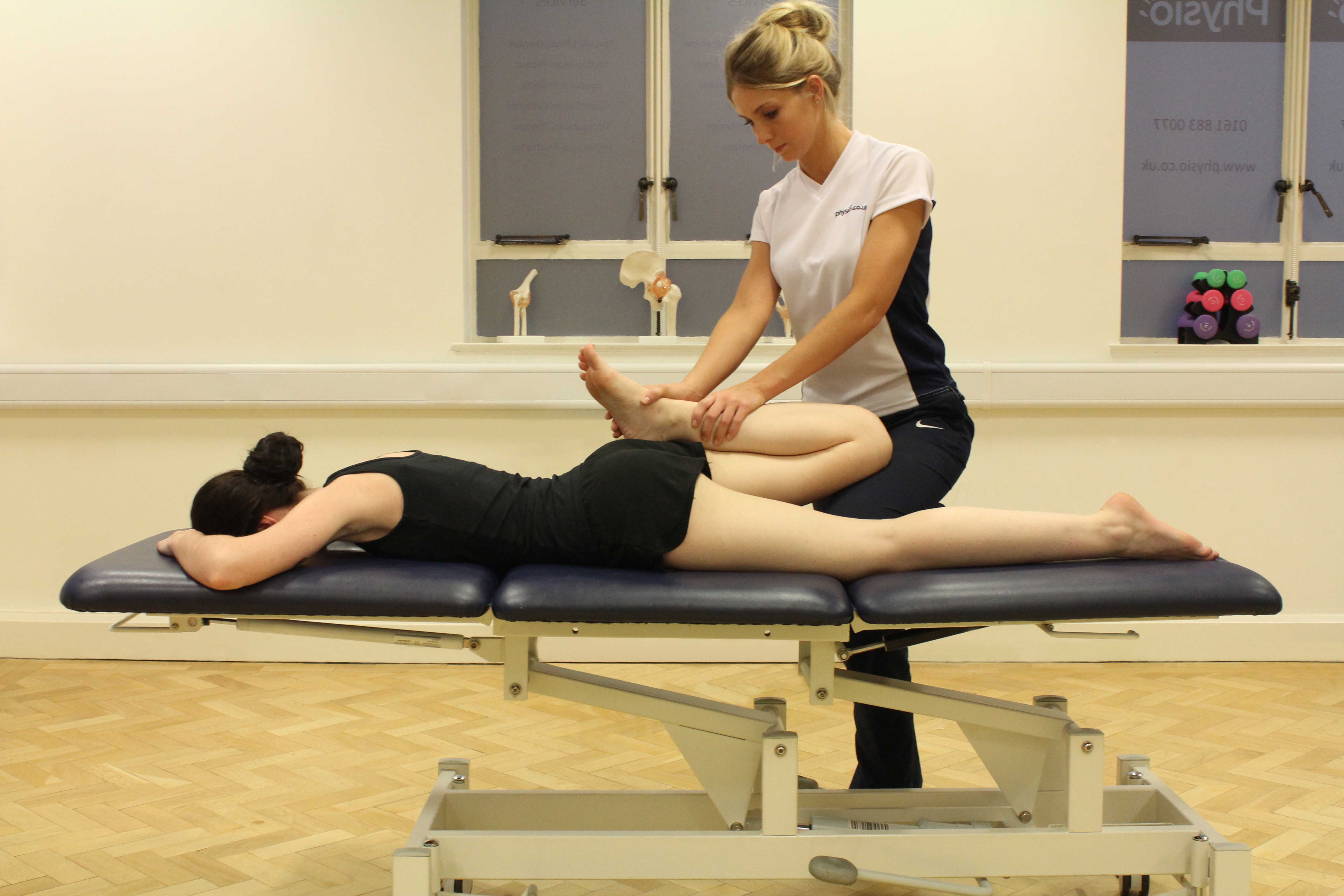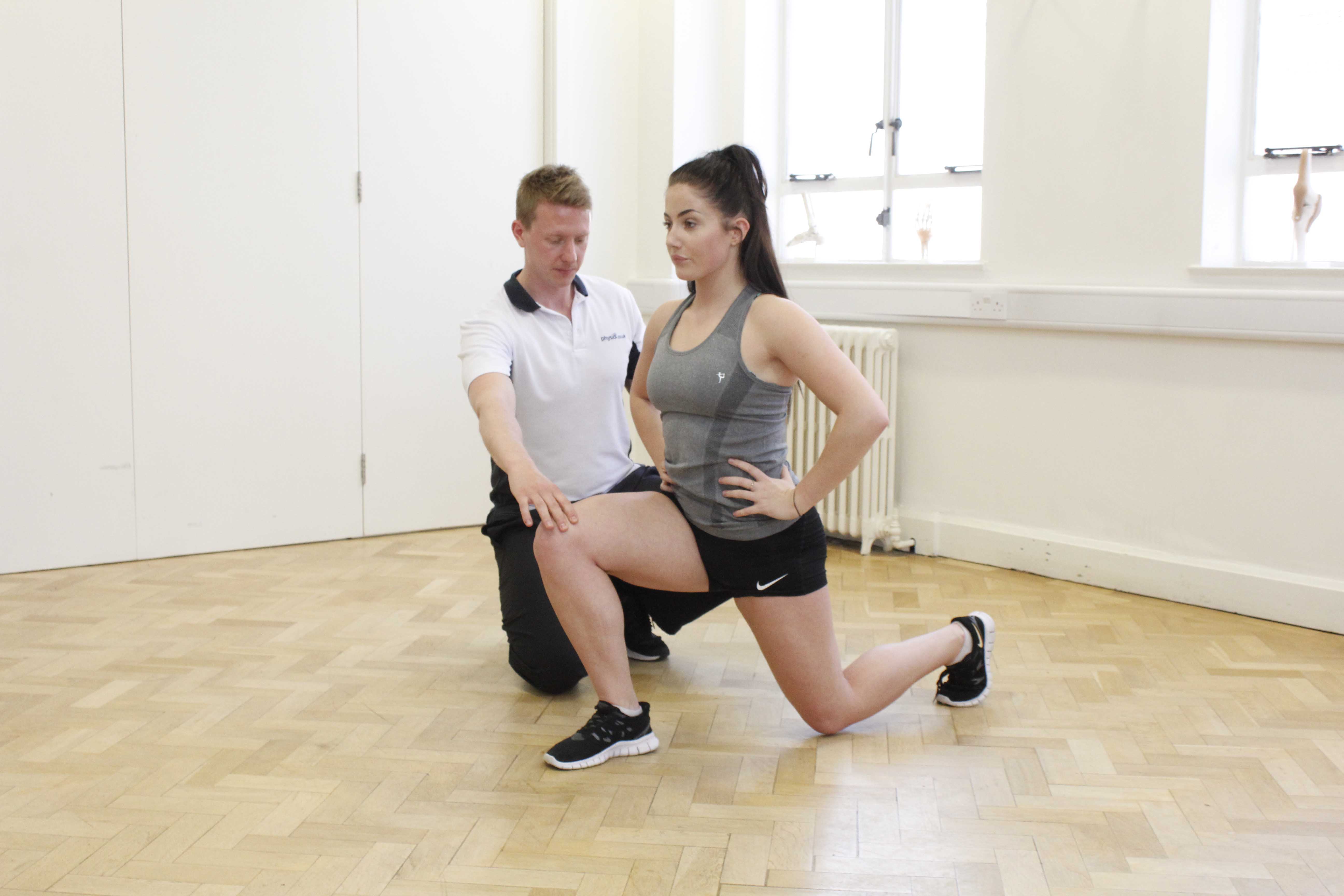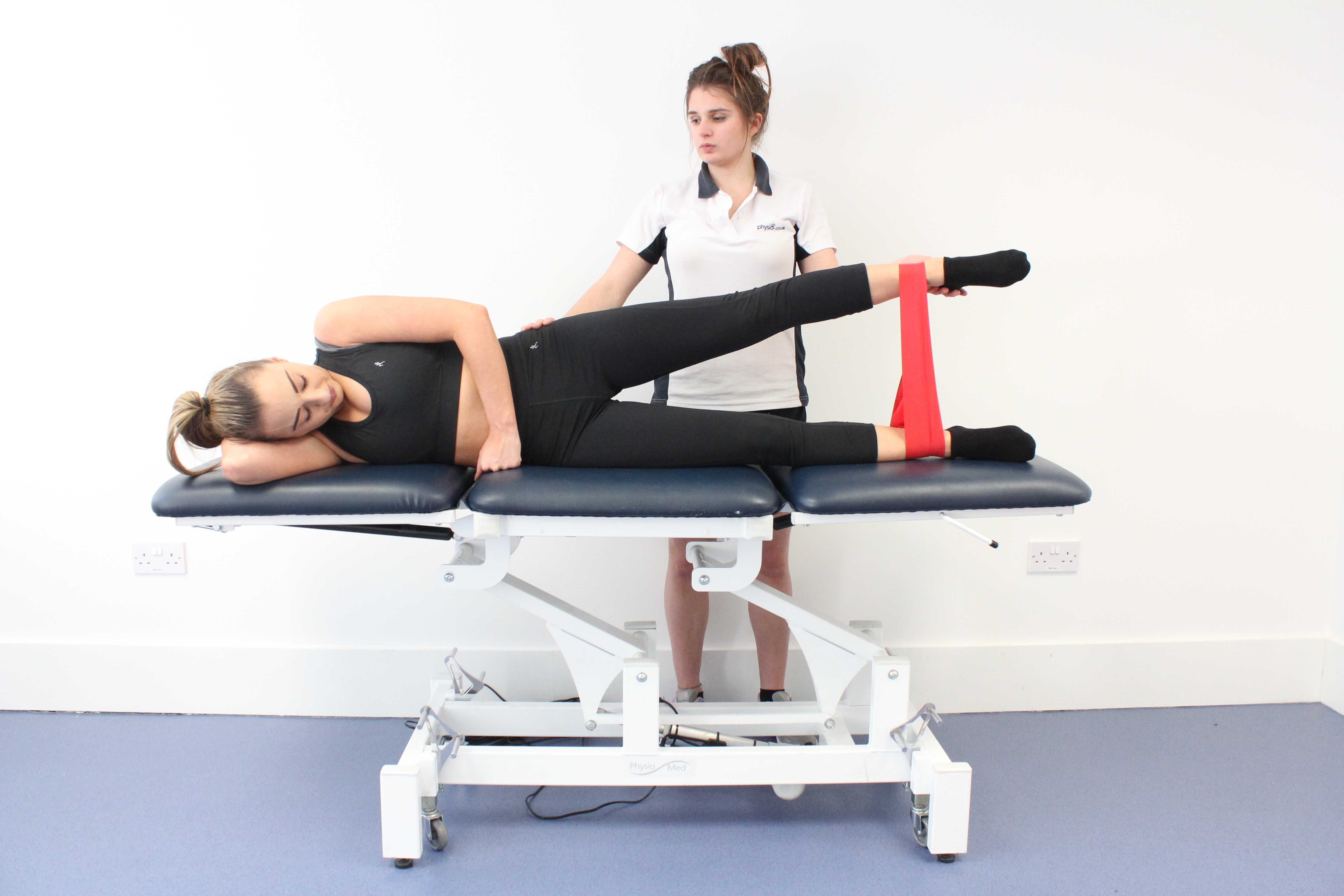What is symphysis pubis dysfunction?
The symphysis pubis is a joint in the pubic area of the pelvis. The symphysis pubis is normally a very rigid joint at which very little movement occurs. Symphysis pubis dysfunction (SPD) is a condition caused by too much movement within this joint. Physiotherapy is a very effective treatment for symphysis pubis dysfunction.
 Above: Passive stretch of the muscles and connective tissues of the hip and pelvis by specialist therapist
Above: Passive stretch of the muscles and connective tissues of the hip and pelvis by specialist therapistHow does symphysis pubis dysfunction happen?
Symphysis pubis dysfunction is caused by laxity of the ligaments that normally provide stability to the symphysis pubis joint. This laxity most commonly occurs during pregnancy. During pregnancy a hormone called relaxin is produced. This hormone causes the pelvic ligaments to loosen to allow slight movement at the pelvis whilst giving birth.
In some women, the ligaments loosen too much too soon. This causes instability of the normally rigid symphysis pubis. The degree of movement can increase as the baby grows heavier. In some cases, the pubic symphysis actually separates slightly. Symphysis pubis dysfunction can also be caused by trauma, such as a road traffic accident, or activities causing repetitive force on the pelvis, such as horse riding.
 Above: Passive stretch of the muscles and connective tissues of the hip and pelvis by specialist therapist
Above: Passive stretch of the muscles and connective tissues of the hip and pelvis by specialist therapistWhat are the symptoms of symphysis pubis dysfunction?
Symphysis pubis dysfunction causes pain in the pubic region. This pain can range from mild to severe and is often aggravated by certain activities, such as turning in bed, climbing up stairs, getting dressed and getting in and out of a car. Other symptoms include:
What should I do if I have symphysis pubis dysfunction?
If you have or suspect you have symphysis pubis dysfunction, you should arrange a physiotherapy assessment as soon as possible.
 Above: Progressive strengthening hip exercises supervised by experienced therapist
Above: Progressive strengthening hip exercises supervised by experienced therapistPhysiotherapy treatment for symphysis pubis dysfunction.
The assistance of a sports medicine professional is important in the treatment of symphysis pubis dysfunction. Initially, they can assist in diagnosing the problem and its severity. This may require the use of imaging techniques such as X-ray, ultrasound or MRI. From this, the sports medicine professional will be able to determine an appropriate treatment plan.
This may involve activity modification, the taking of anti-inflammatory medications, soft tissue treatment such as massage and stretching, and the progression through a series of specific strengthening exercises.
Other treatments include:
What shouldn’t I do if I have symphysis pubis dysfunction?
If you have or suspect you have symphysis pubis dysfunction, you should not ignore the problem. Advice and treatment should be sought as soon as possible to reduce the chances of your pain worsening. You should also avoid perform any activities that aggravate your pain.
 Above: Progressive strengthening hip exercises supervised by experienced therapist
Above: Progressive strengthening hip exercises supervised by experienced therapistCould there be any long-term effects from symphysis pubis dysfunction?
The recovery time associated with symphysis pubis dysfunction can sometimes be lengthy. In some cases it may take a number of months before you can return to normal activities.
To arrange a physiotherapy assessment call Physio.co.uk on 0330 088 7800 or book online.

 0330 088 7800
0330 088 7800





































